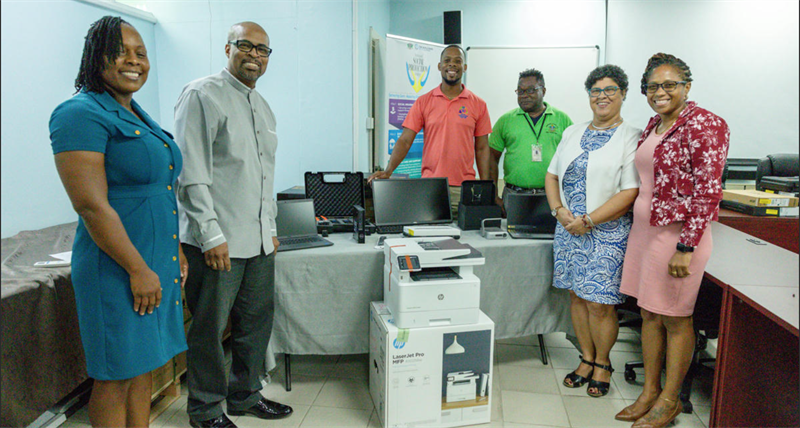Leveraging IT to Advance Inclusive Development for Vulnerable Populations in Saint Lucia
The Ministry of Equity, Social Justice, and Empowerment in St. Lucia, in partnership with the United Nations Development Programme (UNDP) and the Caribbean Development Bank (CDB), orchestrated a symbolic handover ceremony of IT equipment, marking a significant stride in bolstering the resilience and empowerment of vulnerable populations affected by the COVID-19 pandemic. This initiative, aptly named the Safety Nets for Vulnerable Populations Affected by the Coronavirus Project, underscores a shared commitment to inclusive development and addresses critical gaps in education and service delivery exacerbated by the global health crisis. The ceremony served as a tangible manifestation of progress towards creating safer and more inclusive environments for learning and development, particularly for children and youth in care institutions.
The COVID-19 pandemic presented unprecedented challenges, particularly for vulnerable populations and the institutions that serve them. The disruptions to education and caregiving necessitated adaptive responses and innovative solutions to ensure continued access to essential services. This project directly addresses these needs by providing critical IT resources to institutions like the Boys Training Centre, Uptown Garden Girls’ Centre, New Beginnings Transit Home, Rainbow Children’s Home, and the Dennery Child Development Center. The provision of laptops, tablets, and other IT tools is aimed at enhancing educational opportunities and improving the quality of caregiving services provided by these institutions. This intervention recognizes the crucial role of technology in facilitating continued learning and development, especially during periods of disruption and uncertainty.
The symbolic handover ceremony was more than a mere formality. It represented a critical investment in the future of vulnerable children and youth, equipping them with the tools needed to thrive in a rapidly evolving digital landscape. The initiative builds upon the recently concluded Effective Pedagogy and Cybersecurity Training Program, which empowered 25 educators and institutional staff with the skills necessary to navigate distributed learning environments and maintain safe digital spaces. This dual approach of providing both the hardware and the necessary training underscores the commitment to creating a holistic and sustainable impact. By integrating these two components, the project ensures that educators possess the necessary competencies to effectively utilize the provided technology, maximizing its potential for educational advancement and development.
Dr. Charmaine Hippolyte Emmanuel, Permanent Secretary in the Ministry of Equity, emphasized the holistic nature of the initiative, highlighting the importance of collaborative efforts in addressing the systemic gaps exposed by the pandemic. The provision of IT equipment, coupled with the training program, signifies a comprehensive approach to strengthening educational infrastructure and empowering both educators and learners. These resources are not merely tools; they are instruments of empowerment, enabling institutions to create environments where students can flourish academically and socially, irrespective of their circumstances. This commitment to equitable access to education is crucial for fostering social inclusion and ensuring that vulnerable populations are not left behind in the digital age.
Hon. Joachim Henry, Minister for Equity, Social Justice, and Empowerment, reiterated the Ministry’s unwavering dedication to bridging educational disparities and supporting vulnerable populations. He stressed the critical need to equip educators and institutions with the resources necessary to enable students to excel in the ever-evolving digital learning landscape. While the government’s One Laptop program aims to provide individual access to devices, the challenges faced by educators in effectively utilizing these tools require further attention. Retooling and strengthening educators, alongside providing institutional support, are paramount to ensuring the successful integration of technology in education.
The provision of Chromebooks, projectors, and other essential IT equipment serves as a catalyst for empowering students to learn, develop, and compete on equal footing with their peers, both locally and internationally. This initiative is not simply about providing access to technology; it is about creating opportunities for vulnerable populations to realize their full potential. By investing in education and empowering educators, the Ministry of Equity, Social Justice, and Empowerment is fostering a more inclusive and equitable society, ensuring that all children have the chance to thrive in the digital age. This collaborative effort between the Ministry, UNDP, and CDB demonstrates a shared vision for a brighter future for St. Lucia’s vulnerable populations, paving the way for greater resilience, empowerment, and inclusive development.
Share this content:












Post Comment